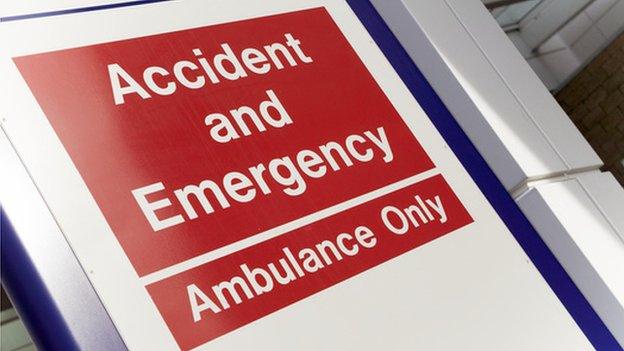Overseas patients face charges for emergency healthcare
- Published
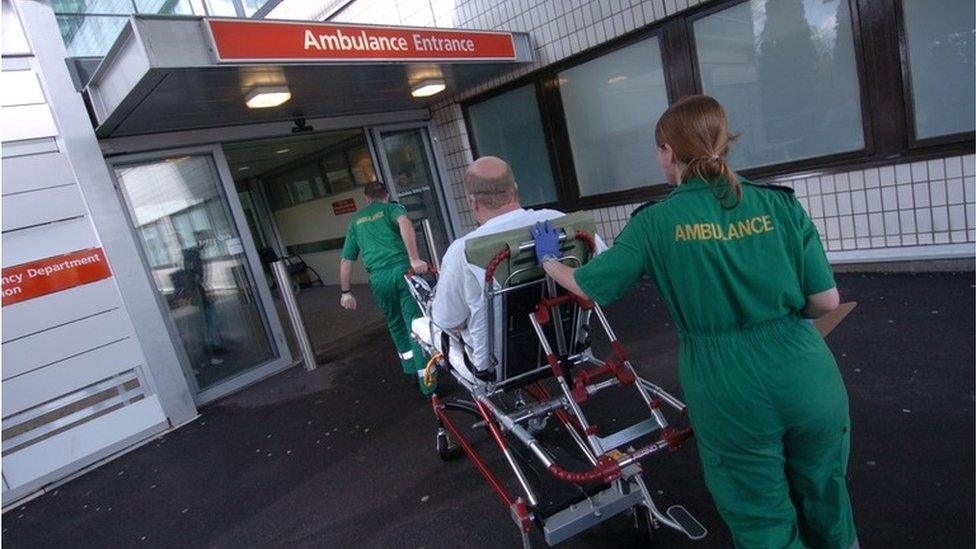
Some foreign patients could be charged for emergency treatment or for calling out an ambulance under new government plans for England.
Visitors from outside the European Economic Area already pay for planned hospital care.
Health Secretary Jeremy Hunt wants to save the NHS millions of pounds by extending the charges to A&E care.
The British Medical Association said doctors were meant to treat patients, "not to act as border guard".
A consultation is expected to be set up in the next few weeks.
Overseas visitors can currently receive A&E treatment, ambulance services and GP visits free of charge, but if the plans go ahead some treatment could be withheld until fees are paid, the Times newspaper reports, external.
BBC political correspondent Chris Mason said a source had told him that no-one requiring urgent care would be turned away, as the cost would be charged afterwards.
The Department of Health said exemptions would be put in place for refugees and asylum seekers, and pregnant women would not be turned away from maternity units if they had not paid upfront.
Health tourism clampdown
A department spokesman said: "International visitors are welcome to use the NHS, provided they pay for it - just as families living in the UK do through their taxes.
"This government was the first to introduce tough measures to clamp down on migrants accessing NHS care and have always been clear we want to look at extending charges for non-EEA migrants.
"No-one will be denied urgent treatment and vulnerable groups will continue to be exempt from charging."
BBC reporter Alan Soady said it was not clear whether the new charges would apply to short-term visitors only, nor how the government would pursue patients who did not pay, particularly if they had left the country.
The EEA covers the European Union, Iceland, Liechtenstein and Norway.
Visitors from these countries must present a European Health Insurance Card when using the NHS, so that the cost of their healthcare can be recouped from their government.
All visitors to the UK and British expats are charged 150% of the cost of non-emergency NHS treatment in order to discourage people travelling to the UK just to use health services - so-called "health tourism".
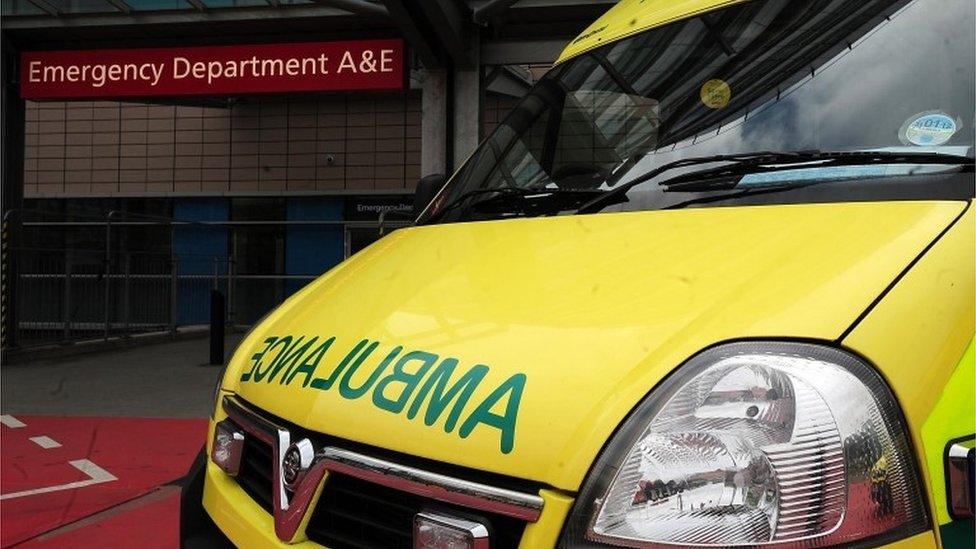
The latest crackdown is expected to reclaim around £500m, according to the Times.
A spokesman for the Royal College of Emergency Medicine told the newspaper that A&E doctors "cannot reasonably be expected to take on the burden of identifying who is eligible for free treatment, and who should be charged".
The British Medical Association agreed, saying: "A doctor's duty is to treat the patient in front of them, not to act as border guard. Any plans to charge migrants and short-term visitors need to be practical, economic and efficient."
But Roger Goss, of Patient Concern, said: "The average patient would think 'quite right too!' In other countries they won't touch you until you get out your credit card and that's how they ought to operate here.
"But the main issue is not whether patients are supposed to pay, it's the failure of hospitals to collect the money."
In April new rules, external came into force which mean non-EU citizens settling in the UK for longer than six months are required to pay a "health surcharge" as part of their visa applications.
- Published13 April 2015
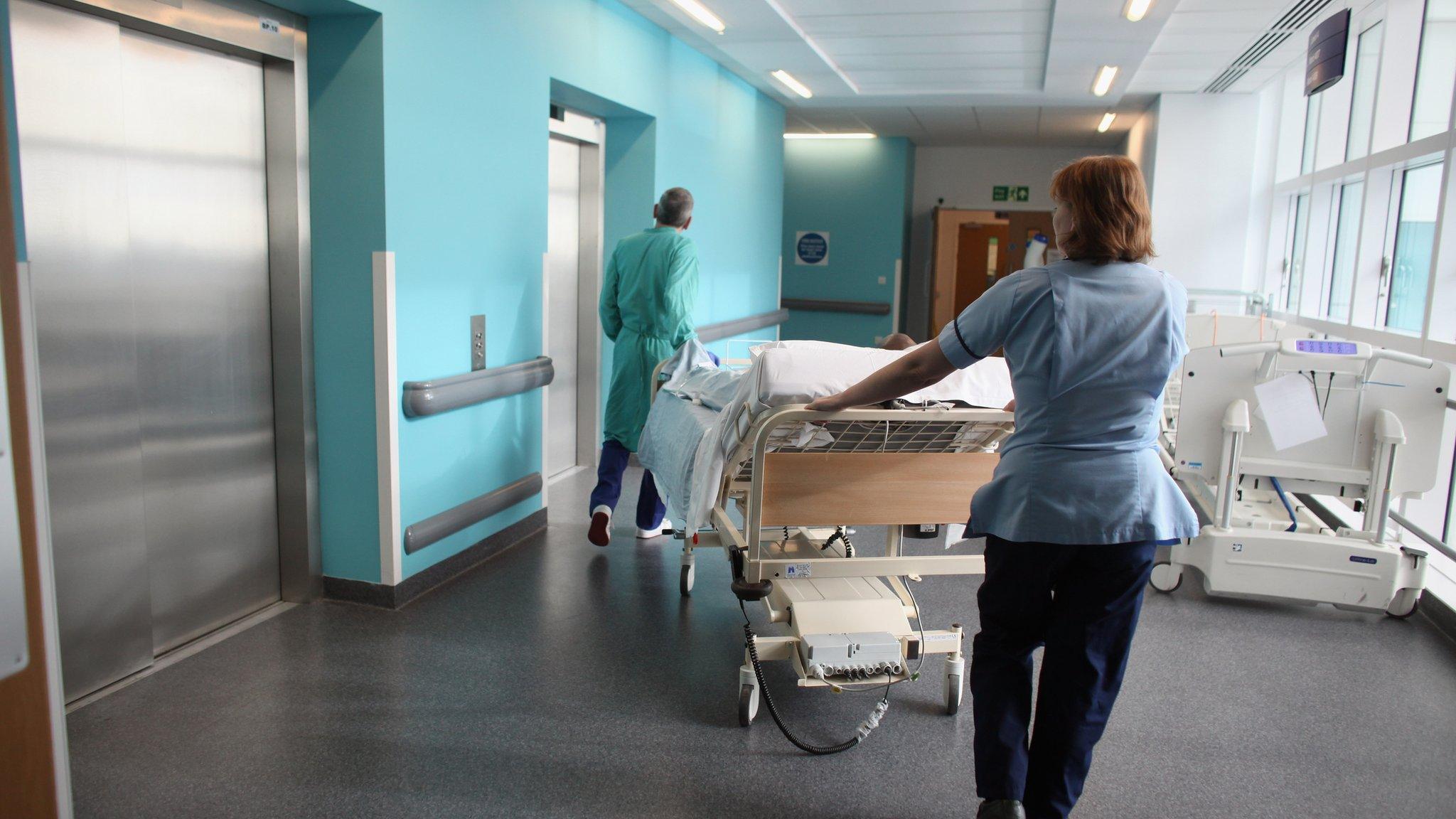
- Published3 July 2013
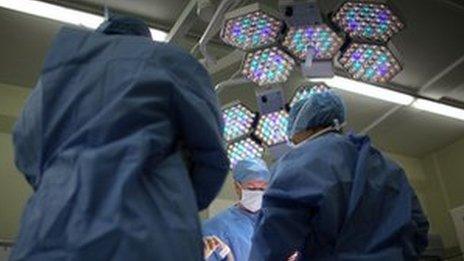
- Published13 March 2015
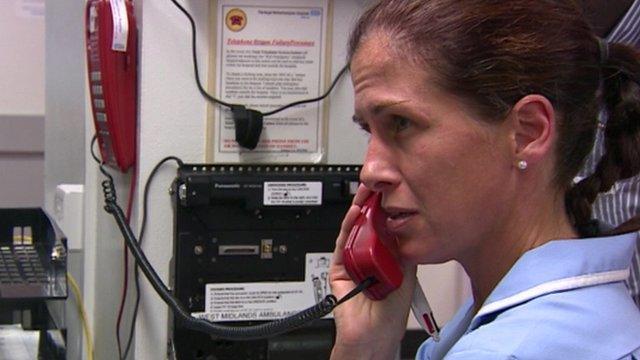
- Published13 March 2015
